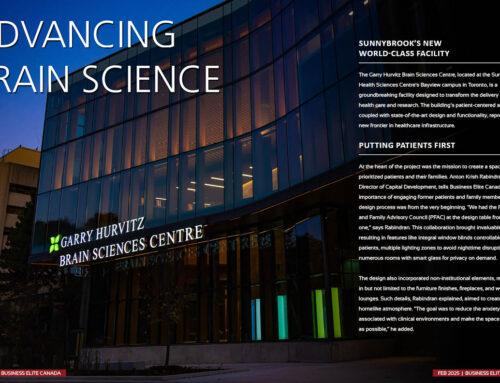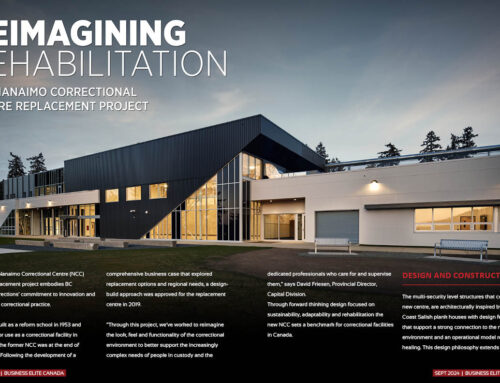Citizens and visitors of Quebec love to enjoy the vast natural beauty it beholds. With over a million and a half square kilometers, people work, fish, hunt, camp, canoe in the most remote corners of the province. These unspoiled corners offer a glimpse into the most undisturbed part of Mother Nature, but at the expense of proximity to vital medical services.
That’s where Airmedic steps in. The innovative, private company provides medical assistance and ground and air transportation anywhere—and everywhere—in Quebec.
Airmedic is the only company in Quebec operating a fleet of planes and helicopters exclusively dedicated to emergency medical assistance and transfers between hospitals. It operates a state-of-the-art coordination center 24/7/365, on an annual, seasonal, or temporary basis. It is notably the first airborne medical evacuation company to obtain Transport Canada certification authorizing night flight using night vision goggles and obtain QMENTUM approval.
Because Quebec’s air medical services are not regulated by the provincial government and are not integrated into the health care system at this point, over 75 per cent of Quebec’s territory cannot be reached by 9-1-1. Since its inception in 2012, Airmedic operations have resulted in more than 6,192 missions and just as many lives saved.
“Airmedic is one of the only ways to be evacuated quickly and increase one’s chances of survival in remote places,” says Sophie Larochelle, Chief Executive Officer. “While health centres in isolated areas provide primary care, a patient must be transported to bigger facilities such as regional hospitals, and for more complex care, one must head to specialized hospital such as Quebec City, Montreal or Chicoutimi,” says Larochelle.
From its first year, Airmedic has made a bold statement by positioning itself as a leader and a reference in airplane and helicopter medical transportation in Quebec. “There was a need for a specific clientele that was using the land for hunting, fishing and outdoor activities such as trekking and back country skiing,” says Larochelle. “Beside the army and the provincial police, there was no services that could provide a fast and efficient pick up for people in critical need.”
For the past 10 years, Airmedic has been working to develop leadership in this sector. “Our mission is to provide fair, efficient and safe service throughout the territory,” says Larochelle. “We have developed cutting-edge and specialized strategy that we look forward to sharing with the Government of Quebec.”
“Our more than 6,000 interventions carried out and 10,338 patients transported throughout Quebec demonstrate our ability to adapt within the air medical environment and demonstrate the real operational strength that characterizes us,” says Larochelle.
Airmedic has implemented a strategic plan for the future that has played a significant role in its growth especially by realizing infrastructures in strategic locations such as Montreal (Saint-Hubert), Saguenay, Sept-Îles and on the Lower-North-Shore.
Airmedic has a reputation for understanding and knowing Quebec’s hostile regions and has a natural affinity and respect for First Nations communities. More than 70 per cent of Airmedic’s operations are carried out in the communities and on First Nations’ territories
“In recent years, Indigenous communities have become allies for Airmedic, which now does more than 75 per cent of its business with them,” says Larochelle. “The company has integrated the communities such as La Romaine/Unamen-Shipu, on the Lower-North-Shore, by building hangars and crew houses to optimise the service to the community.”
Assistance to the northern Inuit and Cree community as well as building infrastructures such as helipad in the Atikamek’w community of Opitciwan and soon in Manawan is another point of pride for Airmedic.
The growth of Airmedic and its service over the past decade is not about to run out of steam. On the contrary, since 2019, the number of deployments for intervention has increased by leaps and bounds of nearly 300 each year.
This continuous and sustainable development is another sign of Airmedic’s commitment to the Quebec air medical community, says Larochelle.
“It is not possible to talk about Airmedic without mentioning all those who put their hearts into the deployment of our operations and the accomplishment of our mission,” says Larochelle. “Every department has a key role in the success of a mission. From the coordination center that plays a center role as the first line to the medical teams, nurses and respiratory therapist to our pilots, the level of professionalism is key to our success.”
“We would not be what we are without the dedication of those who, every day, put their talent at the service of people in need of rapid, coordinated, and efficient care.”
For more information, please visit www.airmedic.net






